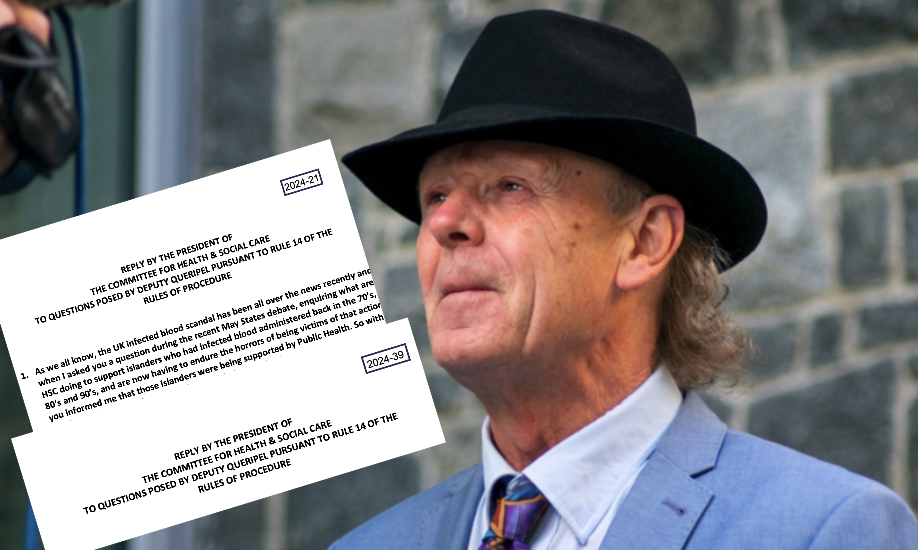


Deputy Lester Queripel has said he will keep asking questions about the local impact of the infected blood scandal until he is satisfied with the answers he receives.
The politician has been moved to push Health and Social Care for more details after looking in to the matter.
He has been trying to find out what support and financial compensation has been afforded to those people affected by the infected blood scandal which emanated from the UK during the 1970s and 80s.
Known victims of the scandal are able to claim compensation through a scheme announced by the UK Government earlier this year.
At the time it was launched, HSC said that "Officers will continue to engage with UK Government officials regarding the establishment of the compensation scheme and how it might extend to Bailiwick residents".
Deputy Queripel's most recent written questions to HSC included the assertion that one Guernsey resident who was a victim of the UK infected blood scandal, had already received compensation from the Guernsey government.
HSC said it wasn't aware of this and that it hasn't seen any documentation to confirm that situation. It also said that it does not know if any other victims have been compensated.
Deputy Queripel said that concerns him greatly.

Pictured (l-r): Deputy Lester Queripel and Deputy Al Brouard, HSC President.
"I’m not satisfied with HSC's response in general and therefore I intend asking further questions in due course," he confirmed to Express. "But before I do that, I will await the outcome of their ‘looking into’ the whole compensation issue, which is an odd one to say the least.
"(The patient) said he has been compensated, yet HSC say they’re not aware of that: that concerns me greatly."
Deputy Queripel has also been trying to find out exactly how many people in the Bailiwick were affected by the scandal.
The BBC recently reported that "more than 30,000 people in the UK were infected with HIV and hepatitis C after being given contaminated blood products in the 1970s and 1980s".
Deputy Queripel has been told a very small number of people in the Bailiwick were treated with infected blood but he isn't satisfied with HSC's reasons for refusing to disclose the exact number.
"I don’t see how saying ‘fewer than 5’ or ‘fewer than 10’ reduces the risk of people being identified as I said in my questions, so my future questions will include a focus on that," he explained.
There have been concerns raised elsewhere about a "cover up" relating to the scandal and its long standing impact.
Deputy Queripel is satisfied that isn't the case here, but he remains gravely concerned about the lack of knowledge by those working in HSC.
"I’m satisfied there hasn’t been a cover up but as I said earlier, (the patient) says he received compensation yet HSC say they’re not aware of that.
"If that is the case then there seems to have been a breakdown in communication somewhere along the line."
Little known officially about local impact of infected blood scandal
Infected blood scandal spread to Guernsey
Comments
Comments on this story express the views of the commentator only, not Bailiwick Publishing. We are unable to guarantee the accuracy of any of those comments.